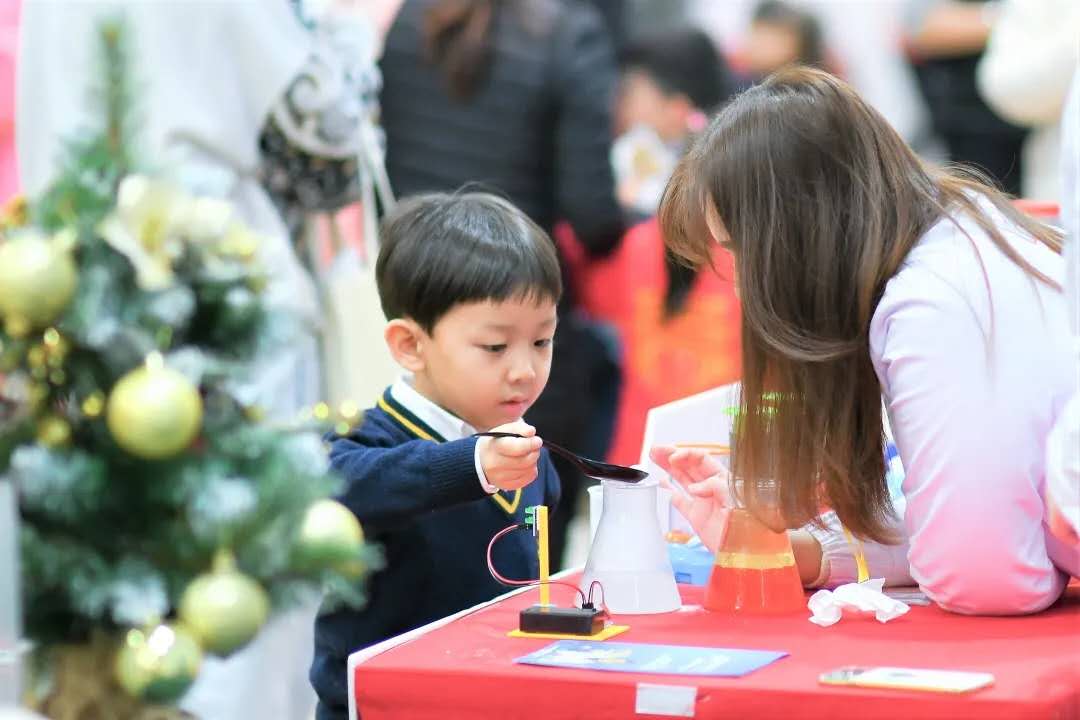
There is a popular theory that has spread in recent years, which is that during childhood and adolescence, which is the prime time to shape children’s cognition structure, a child’s relationship with their family will have great impact on their life. Many problems experienced by adults that are related to their character and psychological cognition can be traced to their own earlier interactions with family. Accordingly, analysis of the family environment is a key factor in determining the psychological and mental growth of any child. Unarguably, the family environment will play a decisive role in cultivating children’s character and their development path. “The family environment is of vital importance in developing children’s mentality and capability.”——Herbert Spencer, educator If parents are actively present in educating their children and exposing them to a loving and warm growth environment, children will most likely have a better understanding and control over their own emotions, as they will model themselves on the behaviours they are exposed to. Around Two Years Old When we consider the theory from the perspective of young children’s psychological development, it is worth noting that children around two years old may often say ‘no’ simply for the sake of saying it as their independent consciousness grows increasingly strong. For example, when you ask them: “Shall we go out to play?” They may say: “No”. When you then say: “How about playing at home?” They may still reply with “no”. Impatient parents may feel upset by this, mistakenly believing that children are behaving disobediently on purpose. In fact, this is an inevitable stage of children’s psychological development, in which they begin to demonstrate their sense of personal strength and independence. Parents need to accept and tolerate such challenges at this stage, considering that the child’s independent consciousness will gradually strengthen and they will begin to be themselves within the boundaries that they have tested. Besides showing patience and understanding whenever children are being challenging, parents can also give timely support and encouragement to them whenever they feel upset or frustrated. This allows the child to internalise the concepts of acceptance and consolation shown to them by their parents. They will become aware that setbacks are not something to be avoided and will become braver when confronted with demanding or unfamiliar circumstances in the future. Eventually, they will build up their resilience and better control of their responses, which will help them to regulate their emotions and learn to be self-motivated when they leave the family home and step into a new society.

After 36 Months
Children move into the narcissistic stage, that is, the stage of ‘ternary relationship’ when they are three years old and above. They come to realise the existence of ‘you (the mother)’, ‘him (the father)’ besides ‘me’. Competition and cooperation are the core of the ternary relationship, which means children may favour or dislike one parent more than the other. In the meantime, they become more capable of understanding that they are loved so much by their parents and their own feelings about their parents cannot simply be described as either ‘love’ or ‘hate’. Instead, love, hate and other emotions become mingled together, enabling children to finally begin to experience the true complexity of human emotion. In this stage of ternary relationships, children will gradually become closer with their father, who plays a key role in children’s growth. If the father maintains a good interaction with his children and gives them guidance and a sense of security, his children will tend to become braver.
Moreover, they learn to appreciate themselves and others while being inclusive of weaknesses shown by themselves or others. Children's social function also develops during this stage where they become adaptive to society and know how to cooperate.

What else can parents do to create a harmonious and loving family environment? First, parents should love and care about each other and demonstrate feelings to their children, so that they can associate a feeling with a name (love, happy, sad etc). When children know that their parents are deeply attached to each other, their hearts are likely to be filled with love and warmth; they will feel secure. When surrounded by this caring and inclusive environment, children can build a healthy and positive psychological state of being. On the contrary, if children live in an environment where their family is chaotic, disruptive and argumentative, it will have an adverse impact on their overall character and mentality and sense of security; an effect which may last their entire lifetime. Secondly, to create a warm family environment, family members should learn to appreciate each other. Parents should proudly praise their children’s virtues and tolerate their shortcomings. Finally, parents and children are valid individuals. Accordingly, it is essential that parents realise that, no matter how young, their children are also an important part of the family and should always be regarded as such. Fairness is the bedrock on which to create a caring and loving family environment, therefore parents and children should communicate with each other patiently.